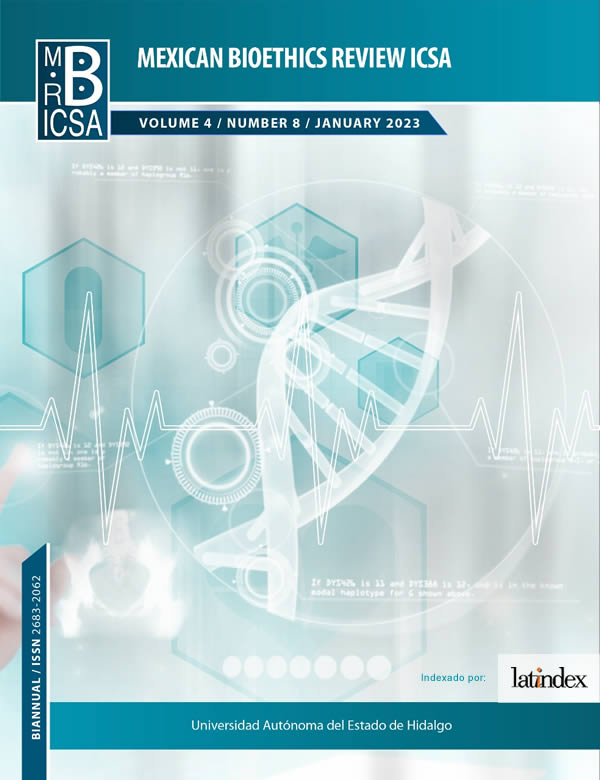Confirmatory Factorial Model of Entrepreneurship against COVID-19
DOI:
https://doi.org/10.29057/mbr.v4i8.9620Keywords:
Social work, Entrepreneurship, specification, model, heads of householdAbstract
The purpose of the work was to specify a model for the study of social understanding. A documentary, cross-sectional and exploratory study was carried out with a non-probabilistic selection of sources indexed to international repositories, considering the indexation, year of publication and impact factor. Discussion axes were established to address the problem, although the research design limited the findings to the sample analyzed, suggesting the extension of other repositories, years and quality indicators.
Downloads
Publication Facts
Reviewer profiles N/A
Author statements
- Academic society
- N/A
- Publisher
- Universidad Autónoma del Estado de Hidalgo
References
Pérez G. Dimensional meta analysismetanalysis of trust: implications for covid19 communications. Technium Social Science Journal. 2020;5 (1):150-156.
Organización Mundial de la Salud. Estadísticas del coronavirus SARS-COV-2 y la enfermedad COVID-19. Ginebra: OMS; 2020.
Organización Panamericana de la Salud. Estadísticas del coronavirus SARS-COV-2 y la enfermedad COVID-19. Washington: OPS; 2020.
Hernandez J. Specification of a social intervention model against COVID-19. Biomedical Journal of Scientific & Technical Research. 2020;26(3):62-66.
Garcia Cruz, Carreon Javier, Hernandez Jorge, Aguilar Jose, Rosas Francisco, Bustos José. Differences in reliability to uncertainty and conflict risk among coffee farmers in Xilitla, Mexico. Eureka. 2015;12(1):73-93.
Hernandez J. Internet harassment in the documentary and expert agenda. Asian Journal of Science & Technology. 2018;10(8):1-3.
Amrouni Hamel, Abdelwahed Roura. Is entrepreneurship for you? Effects of storytelling on entrepreneurialentrepreneurall intention. International Journal of Business and Management. 2014;9(9):176-192. Available: http://dx.doi.org/10.5539/ijbm.v9n9p176
Anguiano F. Meta AnalysisMetanalysis of the effects of entrepreneurship on local development: Implications for the COVID19 coronavirus pandemic. International Journal of Research in Engineering & Science. 2020;8 (9):40-47.
Valdés O. Propaganda public safety: specification a model of social representation of aging, youth and old age. Frontiers. 2019;12(30):1-14.
Bouls B. Specification of a model of entrepreneurship: from opportunism to innovation. International Journal of Advanced Research. 2020;8(3):20-24.
Clark S. Specification of a model of intellectual capital. International Journal of Economics & management Studies. 2020;10(3):1-3.
Ferreiro Francisco. Women and entrepreneurship. A special reference to business incubators in Galicia. RIPS. 2013;12 (3):81-101.
Quiroz CY. Specification of a model digital entrepreneurship. Current Research in Psychology & Behavioral Sciences. 2020;1 (1):1001-1004.
Villegas E. Governance of intellectual capitals millennials for the creation of intangible organizational values. Journal Social Sciences. 2018;6(1):1-9.
Fuentes Fernando, Sanchez Sandra. Analysis entrepreneur: a gender perspective Applied Economic Studies. 2010;28(3):1-28.
Villegas E. Estructura factorial exploratoria del capital humano intelectual. Foro Educacional. 2017;32(1):31-51.
Bustos JM. Contrastación de un modelo de decisión prospectiva e implicaciones para una gobernanza universitaria de la sustentabilidad. Margen. 2018;89(1);1-16.
McCombs M. The agenda–setting function of mass media. The Publicpublic Opinion Quarterly. 1972;36:176-187.
GarcíaGarcia C. Un análisis de los sistemas de comunicación sociopolítica. Diálogos Interdisciplinares. 2017;1(1):1-12.
Carr, John Sequeira, Jennifer. Prior exposure as intergenerational family business and entrepreneurial influenced intent: A Theory of Planned Behavior Approach. 2007;60:1990- 1998. Available:http://dx.doi.org/10.1016/j. jbusres.2006.12.016
Carreon J. Meta AnalysisMetanalysis of intellectual capital scale: Implications for coping with the COVID-19 pandemic. Journal of Biomedical Sciences. 2020;2(8);1-5.
Garcia C. Specification a model for study of entrepreneurship utility. Global Journal of Human Social Sciences. 2020;20(1):34-38
Sandoval FR. Job expectations in the face of risk events and collateral social effects. International Journal of Humanities Social Sciences & Educations. 2020;7(85):1-7.
Villegas E. Specification a model for study of perception of knowledge. Open Journal Political Science. 2019;9(1):1-6.
Limon G.A. Specification a model of need for information about COVID-19 coronavirus. International Journal of Social Science Studies. 2020;8(6):1-5.
Krippendorff K. Validity in content analysis. In E. Mochmann (Ed.). Computer StrategienComputerstrategien fir die kommunikationsanalysekommunikationanlise. Frankfurt-New York: Oxford University Press). 1980;69-112.
Krippendorff K. Content analysis. In E. Barnouw (Ed.). International Encyclopedia of Communication. (New York: Oxford University Press). 1989;403-407.
Krippendorff K. Measuring the reliability of qualitative text analysis data. Quality and Quantity. 2004;38:787-800.
Krippendorff K. The social construction of public opinion. In E. Wienand, Westerbarkey, J. & Scholl, A. (Eds.). Kommunikation iiber kommunikation. Theorie, Methoden and Praxis. (Wiesbaden: VS-Verlag,). 2005;129- 149.
García C. Gobernanza del emprendimiento institucionalizado ante el cambio climático a partir del establecimiento de una agenda pública. Sin Frontera. 2015;8(20):1-15.
Rodriguez Alfonso. New perspectives for understanding entrepreneurship. Thought and Manage; 2009.
Loui Alexander, Carpio Javier, Vergara Arturo. Entrepreneurial attitudes, need for achievement and the intention to develop a business student public universities in metropolitan Lima. Journal of Psychology. 2012;15(1):61-81.
Obrego Clara. The human dimension of the enterprise. Strategic Sciences. 2008;16(20): 225-235.
Carreón J. Especificación de un modelo de emprendimiento digital para el desarrollo humano mediante el uso intensivo de tecnologías de información y comunicación. Perspectivas. 2015;12(25);123-155.
Garcia Cruz. The social and political legitimacy of the administration of public security in Xilitla, San Luis Potosi (Mexico). Administrative Research. 2015;115:24-40.
Hernández J. Modelo de cibercultura organizacional en la innovación del conocimiento. Visión Gerencial. 2019;18(2): 200-218.
Sánchez A. Confiabilidad y validez de un instrumento que mide la gestión del conocimiento. Espacios en Blanco. 2019;30 (2):9-28.

















